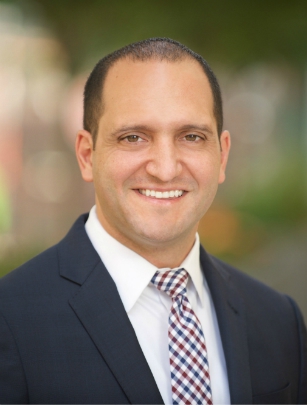The coronavirus pandemic has wreaked havoc on nearly all areas of New York life, and the court system is no exception. Nevertheless, courts provide truly essential services and the the New York State Court System is striving to make the courts as accessible as possible while limiting the health risk to judges, staff, jurors, litigants, and the public.
What does this mean for those involved in the probate or administration of a loved one’s estate? Courts are open, but access and procedures have changed. Efiling is now available statewide; many court appearances are virtual; and courts are taking longer to process applications.
Are the Surrogate’s Courts open?
Yes—but things are different. The Surrogate’s Courts in every county in New York State are open, but your experience will depend on which county you’re located in. Applications are accepted in every court as is efiling. Many courts limit access to the public. This affects those who wish to file applications in person and those who wish to search the records. You should contact your local court to determine whether any restrictions may affect you.
How have procedures changed in Surrogate’s Court?
The procedures in Surrogate’s Court have changed drastically. Efiling is now available in every county; and new protocols have been implemented to limit the number of people entering courthouses.
Efiling
The statewide implementation of efiling was a huge technological advancement considering that Queens was the only county in New York City with efiling capability before the pandemic.
Applications on Consent – Where Everyone Agrees to Your Request
If you’re trying to probate a will, or apply for other relief, and all necessary parties indicate their consent in writing, then your application should be processed without the need to go to court. Your application can be efiled, and if your paperwork is in proper order, the Surrogate should grant your request.
Virtual Appearances
Outside New York City, some motions, hearings, and trials are being conducted in-person. Within New York City, most appearances are conducted virtually. The statewide medium for video conferencing is Microsoft Teams.
How long does it take to probate a will?
In normal times, Surrogate’s Court attorneys tend to view this question as a difficult one. Amid the pandemic, it’s a question that is impossible to answer with any certainty. We can only look to our evolving experience since the pandemic began. A broad, pre-pandemic discussion of How Long Does Probate Take? is available.
Expectations in Normal Times
The amount of time it takes to get a will probated (or to resolve other Surrogate’s Court applications) first depends on how quickly clients and third parties provide necessary information. We are generally able to file an application for probate or administration in a matter of weeks, but once the application is filed, it’s in the court’s hands.
New York City courts see a huge volume of cases, which increases processing times. In normal times, depending on the county, a straight-forward probate or administration petition could be granted within a few weeks to a few months. Certain issues cause additional delays, such as difficulty obtaining a death certificate or the location of an heir. If a dispute arises, then all bets are off when it comes to predicting a time frame for resolution.
Expectations in the COVID Era
As in normal times, different counties process applications at different speeds. While some counties have relatively consistent results, others are unpredictable. We’ve filed COVID era petitions that took anywhere from a few weeks to a few months to be granted, while other petitions have been sitting for six months or more with no end in sight. Where an emergency exists, protocols are in place to expedite the application. It’s important to remember that the courts are stressed as much as everyone else. Patience is key.
Our strategy is to file petitions as quickly as possible, follow up regularly with the courts, and maintain strong relationships with the judges and court staff. We find that this strategy gets the job done as quickly as possible.
Health Precautions
As of September 27, 2021, all judges and non-judicial staff are required to be vaccinated against COVID-19 subject to medical or religious exemptions.
What can I expect from Antonelli & Antonelli?
We keep our clients updated in real-time through various media. You can access tips on communication with our firm and ongoing updates regarding how we are operating during COVID HERE. You can also follow us on Facebook and on LinkedIn to stay up-to-date.
Access to Evolving Protocols
Antonelli & Antonelli is heavily invested in the legal community. Our attorneys sit on committees of various bar associations which provide insight into the inner workings of the Surrogate’s Courts and of the New York State court system. We receive regular updates from the State’s Chief Judge and Chief Administrative Judge. This broad network gives us access to changing procedures as they evolve, and we use that information to provide the best possible service to our clients.
Efiling
Efiling technology is difficult for many. For us, it’s second nature. Our attorneys are trained for efiling in both Surrogate’s Court and Supreme Court, and we utilize this technology to enhance our practice.
Contact us to discuss your estate issue
If you would like to discuss how your estate issue may be affected by the evolving protocols, please contact us for a free consultation.


